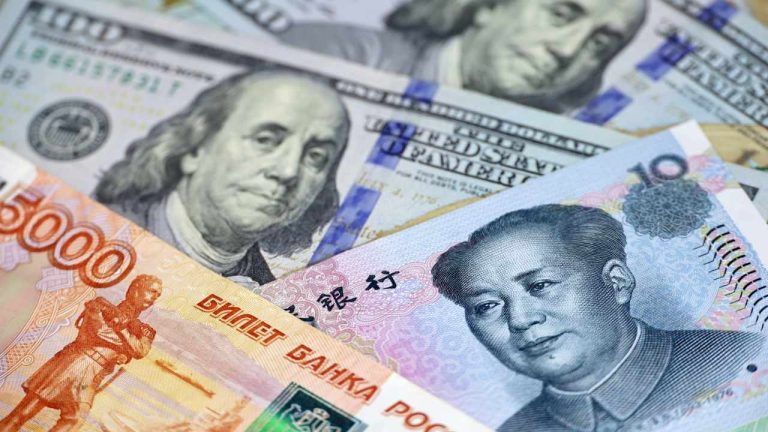Volatility in Chinese Yuan, Russian Ruble Makes De-Dollarization Harder, Market Analyst Says

A market analyst says that the recent decline and volatility in the Chinese yuan, the Russian ruble, and to a lesser extent the Argentine peso, “will only add further challenges to the idea of de-dollarization.” He stressed that countries are “unable to agree on a clear path to de-dollarization apart from increasing trade in their own currencies.”
Chinese Yuan, Russian Ruble Face Challenges as U.S. Dollar Alternatives
Zain Vawda, a market analyst at Dailyfx, has outlined the challenges faced by the Chinese yuan and the Russian ruble as alternatives to the U.S. dollar. The analyst described:
The recent decline and volatility in the Chinese yuan, the Russian ruble, and to a lesser extent the Argentine peso, will only add further challenges to the idea of de-dollarization.
He explained that the main problem is trust, noting that “since the move away from the gold standard, the USD is seen as the most stable, trustworthy, and liquid currency globally.”
The analyst opined: “Given that these countries are unable to provide stability to their own local currencies, tough questions are likely to be asked about how they could find common ground on a single currency to combat the dollar’s dominance.”
One common currency that has been heavily discussed of late is the proposed BRICS currency. The upcoming summit of the economic bloc (Brazil, Russia, India, China, and South Africa) is slated for next week, and many expect the topic of a common currency to be discussed.
However, Vawda sees several obstacles in the de-dollarization process, stating:
The biggest challenge however is an internal one as the countries mentioned are unable to agree on a clear path to de-dollarization apart from increasing trade in their own currencies.
“This has increased of late with countries diversifying their foreign exchange reserves and yet most of them still hold more U.S. dollars than all other currencies combined,” the analyst concluded.
Do you agree with analyst Zain Vawda regarding the U.S. dollar and its potential challengers? Let us know in the comments section below.